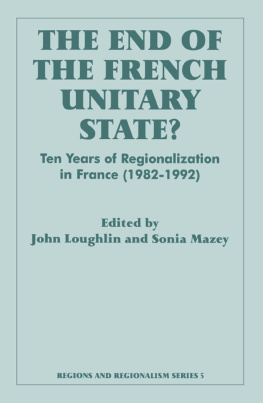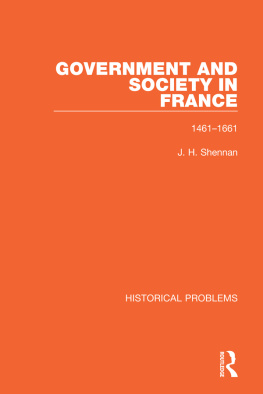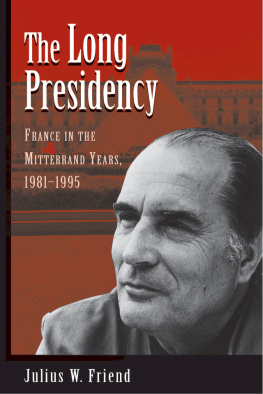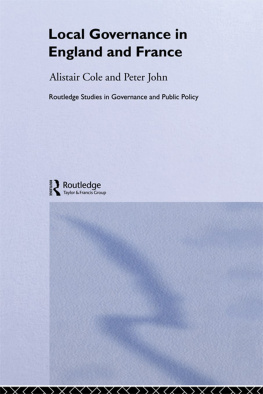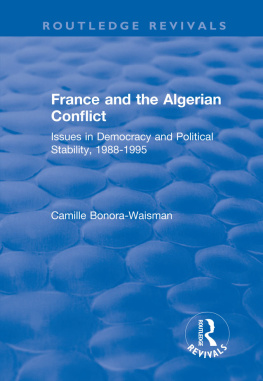First published in 1995 in Great Britain by
FRANK CASS & CO. LTD
Newbury House, 890-900 Eastern Avenue, Newbury Park, London
IG2 7HH, England
and in United States of America by
FRANK CASS
c/o ISBS
5804 N.E. Hassalo Street
Portland, Oregon 97213-3644
Transferred to Digital Printing 2004
Copyright 1995 Frank Cass & Co. Ltd
Library of Congress Cataloging-in-Publication Data
A catalogue record for this book is available from the Library of Congress
This group of studies first appeared in a special issue on The End of the French Unitary State?: Ten Years of Regionalization in France (1982-1992) in Regional Politics & Policy Vol. 4, No. 3, published by Frank Cass & Co. Ltd.
All rights reserved. No part of this publication may be reproduced in any form or by any means, electronic, mechanical, photocopying, recording or otherwise, without the prior permission of Frank Cass and Company Limited.
Typeset by Frank Cass & Co. Ltd., London
JOHN LOUGHLIN AND SONIA MAZEY
When the French socialists came to power in 1981 for the first time in 23 years, they announced that they would implement a vast programme of decentralization which would be la grande affaire du septennat. Gaston Defferre, then Minister of the Interior and Decentralization, would take responsibility for these reforms which became known simply as the Defferre Reforms. As part of these reforms, the pre-existing regions (which had the legal status of tablissements publics) would be strengthened by being upgraded to collectivits territoriales (like the departments and municipalities) and by having democratically elected regional councils. Some island regions, such as Corsica and the overseas territories, were to be given special statutes to take into account their geographical situations.
These reforms had been mooted for some time by the socialists and many of them were contained in the 110 Propositions du Candidat Mitterrand during the presidentialelection campaign in 1981. They, therefore, came as no surprise. However, what did surprise many commentators was the centrality of their position in the socialists programme. It had been expected that the socialists would concentrate on traditional left-wing issues such as nationalization and strengthening social welfare provisions. Indeed, in 1945, French left-wing parties had been united in their support for a centralized administrative state, which they regarded as the primary guarantee of democratic equality and essential for effective economic planning. The shift in thinking came during the 1960s, when two shifts occurred. First, several left-wing intellectuals, many of whom were later to join the new Socialist Party founded by Franois Mitterrand in 1971, became vocal supporters of regional decentralization. A good example of this was Michel Rocard, leader of the PSU (Parti Socialiste Unifi) and later member of the PS, who wrote the provocative book Dcoloniser la Province. The second important shift was the swing of regionalist groups to the left of the political spectrum. Previously, regionalism in France had been associated with the right and even with authoritarian ideas such as fascism. The ideological shift towards decentralization on the part of the French left was partly a result of their long period in opposition which made it necessary for them to develop an ideology distinct from that of the right. These were the years after May 1968 when it became fashionable to speak of autogestion as a method of regulating state-society relationships. However, it was also a response to widespread disillusionment with centralized planning. Growing economic disparities between regions and the impact of international economic recession during the 1970s convinced many on the left of the need to develop regional economic development strategies, based upon a regionalized economic plan. The 1960s and 1970s were also characterized by the revival of regionalist cultural and political movements which found a sympathetic home within the Socialist Party. Indeed, there was often an exchange of personnel between regionalist groups in regions such as Brittany, Corsica, the French Basque Country and Occitania. Meanwhile, economic and industrial disputes began to assume the character of regional protests against a capitalist, centralized state. Inevitably, party political considerations were also involved. Although the left had been out of power at the national level since 1958, local electoral agreements between the Socialist and Communist Parties had produced impressive results. by the late 1970s, many left-wing local councillors particularly younger ones were eager for more local autonomy. Thus, the Socialist Party at this time might be described as a broad coalition movement, with traditional centralist Jacobins such as Jean-Pierre Chvnement coexisting alongside regionalists, environmentalists and autogestionnaires in favour of greater local democracy, technocrats keen to introduce more effective, regionalized planning, and local political notables eager for more power.
Since the 1950s, the regional dimension of French public policy-making, particularly in the area of national planning, had grown by fits and starts. By the late 1970s, consultative regional councils, albeit with limited powers, had already been established. The new regionalization of the planning process by the Socialist Party between 1981 and 1983 was justified by two main arguments. It was intended to serve as an instrument of macro-economic management of the economy. Similarly, abolition of prefectoral tutelle and the introduction of directly-elected regional governments were intended to increase local democracy. However, when the party abandoned its neo-Keynesian approach and adopted some neo-liberal approaches in 19834, with the appointment of Laurent Fabius as Prime Minister, the meaning of the decentralization reforms changed to take into account this new orientation. Now the primary purpose of decentralization was the modernization of the French state.
After the first socialist defeat in 1986, many socialist policies were either modified or reversed by Jacques Chiracs neo-liberal government. However, the 1982 regional reforms have survived largely intact. To some extent this was because the method chosen by Gaston Defferre to implement the reforms (a legislative avalanche) had ensured that they would be irreversible, as Defferre had intended. However, during the period in opposition, the right had come to terms with the new institutions as they provided them with a platform from which they could attack the socialist government. These two factors led to a consensus on the part of all the parties in France with very few exceptions in favour of regionalization and decentralization. The political discourse used to justify the region has, however, undergone a significant change. The primary role of the region is no longer to promote economic redistribution and local democracy. Nor is regionalization any longer (as it was between 1984 and 1986) primarily linked to the modernization of the French state. Instead, regional authorities are now expected to assist private enterprise and regenerate the market economy. Indeed, the privatization of many public services such as transport and housing means that French regional authorities increasingly find themselves in partnership with the private sector. Relationships between regions (and between other local authorities such as departments and municipalities and regions) have thus become increasingly competitive in nature.

